Fake news harms children's self-esteem and trust, say MPs
- Published
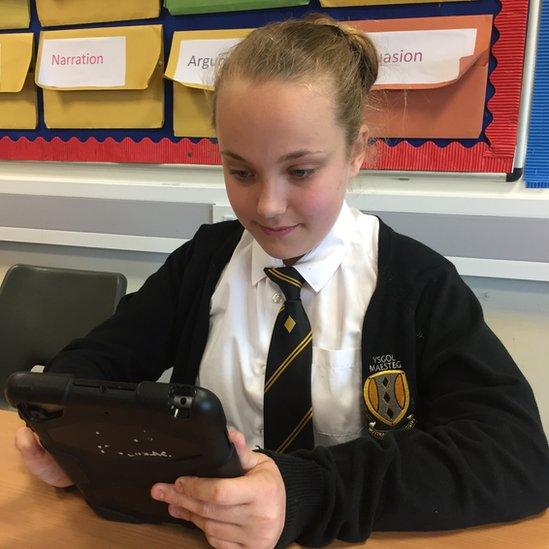
A few weeks ago, Chloe, 13, shared a hoax story about the alleged death of a favourite actor, Sylvester Stallone.
"I thought it was real and shared it with family members. A lot of people were quite upset," she says.
When the truth emerged that Sylvester Stallone was alive and well, Chloe says she felt stupid.
"I should have looked into it a bit more before posting," she adds.
Chloe is not alone, according to a report from a group of MPs which says that falling for fake news can harm children's "wellbeing, trust in journalism and democracy itself".
The all-party parliamentary group on literacy heard evidence that fake news could make children more anxious, damage their self-esteem and skew their world view.
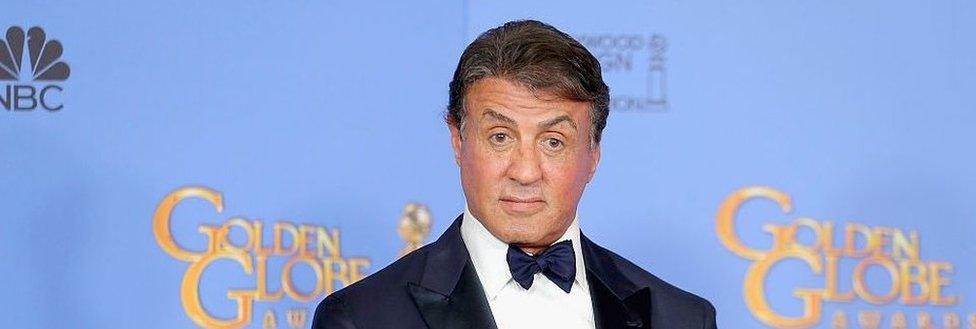
The actor has confirmed he is still alive
In research for the report, the National Literacy Trust showed more than 2,000 UK eight to 16-year-olds six news stories, two of which were fake, and asked them to identify which were real and which were not.
Only 2% got all six right.

Missing plane 'found'
When he was 13, Mitch spotted what he thought was a good news story on Twitter.
A missing airliner had been found and everyone on board was safe.
There were pictures, he liked it and retweeted it and several of his friends did the same.
But within hours it became clear the story was fake, the picture was an old one which had been reposted and Mitch and his friends had been conned.
Now 16, he says he still remembers how upset he was "to find it wasn't true and the families hadn't found their loved ones".
He says he felt shocked, foolish and embarrassed.


Of the children questioned in the survey:
almost half were worried about their inability to tell which stories in their social media feeds were false and which were real
almost two-thirds said fake stories made them trust the news less
TV is still the most popular source of news according to the survey.
three quarters watch TV news and 80% say they trust it
almost half listen to radio news and 75% say they trust it
However, almost half of the secondary age pupils said they got news from social media, particularly Snapchat, and only about a quarter trusted what they read there.
All of this contributes to a culture of fear and uncertainty among young people, says the report.
Literacy link
The report found that children with the poorest literacy skills, often boys and those from disadvantaged backgrounds, were least likely to be able to spot fake news.
Lucy Powell MP, who chairs the group, said the findings highlighted "a dangerous lack in the literacy skills that children and young people require to navigate our digital world and identify fake news".
"This is causing them to mistake false news for fact, become anxious as they believe misleading stories, and risk exposure to malign agendas," she added.
The report includes a children's charter on fake news, developed with input from children and young people, which demands the right to accurate news from trustworthy media companies.
It also urges greater efforts:
to boost children's critical literacy skills by discussing stories from a range of sources in lessons
to boost children's understanding of how news is made
Presenter Mariella Frostrup said the report was "an important reminder of the need to equip young people with confidence and skills to chart their own cautious course through the acres of fake news and propaganda".

Head teachers' leaders warned against putting additional demands on schools.
Geoff Barton, general secretary of the Association of School and College Leaders, said schools once again found themselves "on the front line of trying to provide a solution to a society-wide issue".
He said critical literacy was already taught through subjects including English and history and online safety in personal, social and health education.
"We would like to see more action from online platforms to prevent the proliferation of fake news stories in the first place."
And Nick Brooke, deputy general secretary of the National Association of Head Teachers, called for protected time on the curriculum for non-exam subjects.
"Yes, we need to teach grammar and spelling, but we also need to instil a thirst for knowledge, a love of reading and the critical literacy skills that enable young people to make informed decisions as to what to believe and what to ignore."
Mitch and his fellow sixth formers at St Michael's Catholic School in High Wycombe are keen to see better regulation of social media companies and would like it to be easier for people to report fake news stories and have them taken down.
While BBC School Reporter Chloe, from Ysgol Maesteg near Bridgend, has helped her school develop advice for pupils on how to tell fake news from fact.
- Published14 March 2018
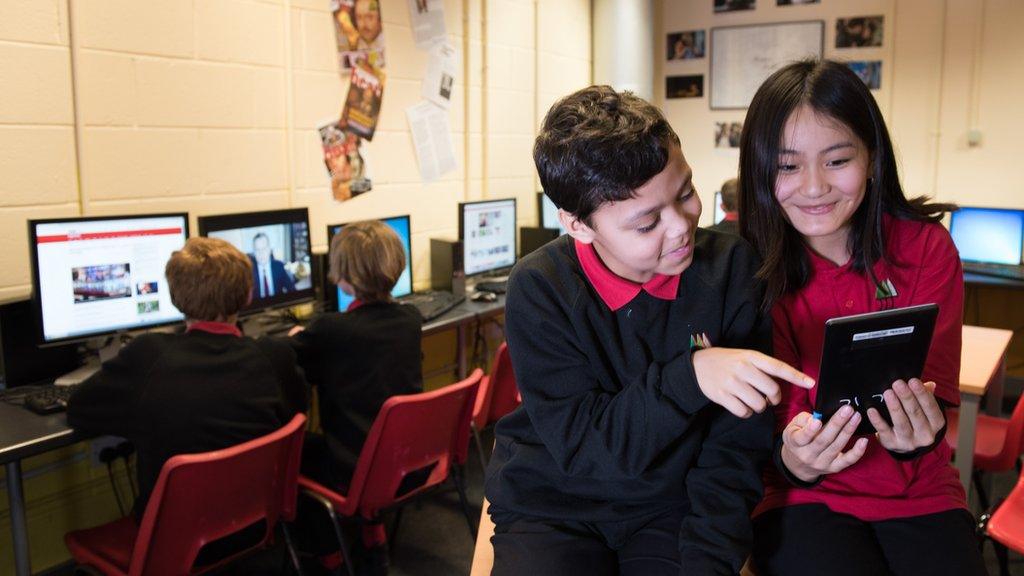
- Published15 March 2018
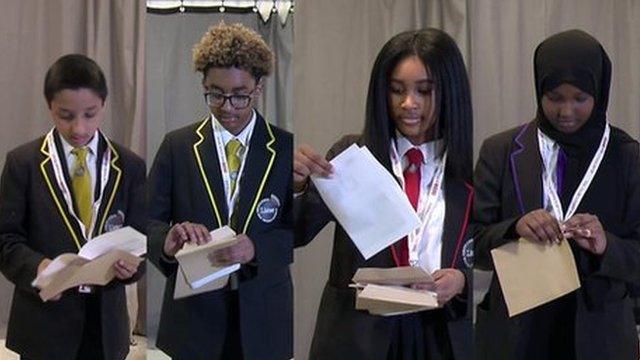
- Published20 February 2018

- Published6 December 2017
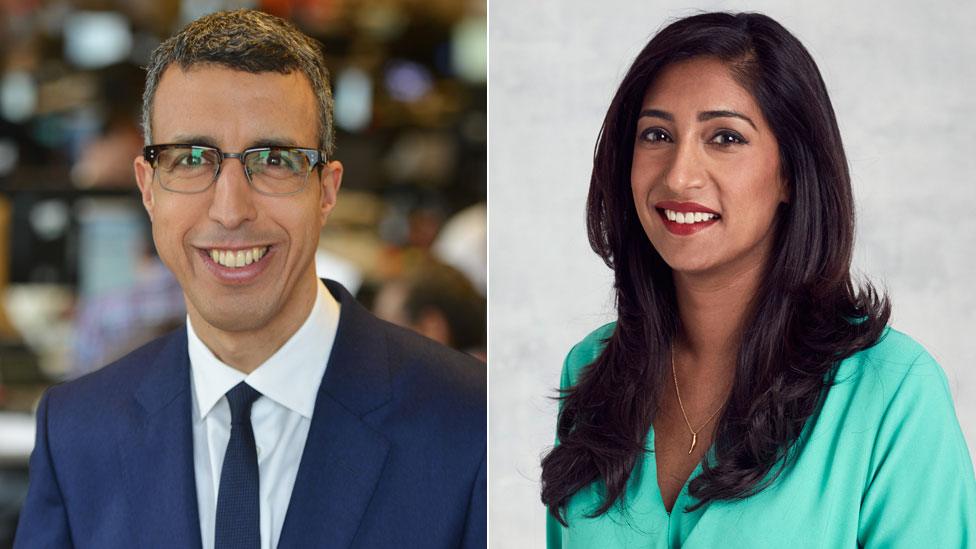
- Published9 November 2017
